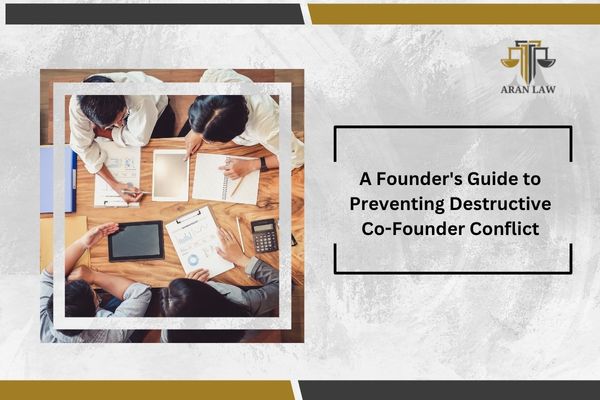The Startup Nightmare: How a “Ghost Co-Founder” Can Scare Away Investors
You’ve done it. You’ve found the perfect co-founder, come up with a brilliant idea, and you’re ready to change the world. In the early days of excitement and trust, it’s easy to split the company’s ownership (equity) and dive right into work. But what happens if that co-founder leaves a few months later?
If you’re not careful, you could be left with a ghost co-founder—someone who owns a large piece of your company but no longer contributes to its growth. This isn’t just a minor annoyance; it’s a critical red flag that can make raising funds nearly impossible and kill your startup before it even gets off the ground.
Also Read: A Founder’s Guide to Preventing Destructive Co-Founder Conflict
What is a Ghost Co-Founder?
A ghost co-founder is a person who leaves a startup early on but retains a significant chunk of equity that was granted to them upfront, with no strings attached. This unvested equity, often called “ghost equity,” creates a major problem for the active founders and the future of the company.
Imagine this real-world scenario:
- An investor is excited about a startup with a brilliant founder and strong early traction.
- During due diligence, the investor discovers that 30% of the company is owned by a co-founder who left two years ago.
- There’s no vesting schedule, no buyback clause, and no exit agreement. That 30% is just… gone.
The investor walked away. Not because they didn’t trust the active founder, but because that “ghost equity” was a clear sign of future trouble.
Also Read: What is a Broken Cap Table? How to Avoid This “Uninvestable” Red Flag
Why Ghost Equity Is a Deal-Breaker for Investors
When investors look at your company’s ownership list (the “cap table”), seeing a large slice of equity in the hands of a non-contributor is a massive red flag. Here’s why:
- It’s “Dead Equity”: Investors are putting their money into the team that will build the future. Why should a significant portion of their investment value go to someone who isn’t there to do the work?
- It Signals Future Fights: That orphaned equity is a recipe for disaster. It can lead to boardroom fights, conflicts over company direction, and headaches for the active founders.
- It Complicates Future Funding: When you raise new rounds of funding, issuing new shares becomes incredibly complex and can unfairly dilute the ownership of the people actually working to grow the business.
- It Hampers Motivation: It’s incredibly demotivating for the remaining team to know that a departed founder is still reaping the rewards of their hard work. In one case, a technical co-founder left after just four months—having written zero code—yet kept a large ownership stake that hamstrung the startup’s progress.
The Simple, Non-Negotiable Solution: Vesting Schedules & Founders’ Agreements
The good news is that this entire nightmare is completely avoidable. The solution is simple and standard practice in the startup world: always implement a vesting schedule and sign a founders’ agreement from day one.
1. Implement a Vesting Schedule
Vesting ensures that equity is earned over time, not given as a lump sum. If someone leaves early, they only get to keep the portion of equity they have “earned.”
The industry standard is a 4-year vesting schedule with a 1-year cliff. Here’s how it works:
- The 4-Year Vest: The equity is earned over a four-year period.
- The 1-Year Cliff: This is the most important part. An employee or founder receives zero equity if they leave within the first year. On their first anniversary (the “cliff”), they instantly receive 25% of their total equity.
- After the Cliff: The remaining 75% is earned gradually, usually on a monthly or quarterly basis, over the next three years.
This system ensures that anyone with significant ownership has a strong incentive to stay and contribute to the company’s long-term success.
2. Sign a Founders’ Agreement
A Founders’ Agreement is a legal document that outlines the roles, responsibilities, and, most importantly, the equity ownership and vesting terms for all co-founders. It may feel like an uncomfortable, overly formal conversation to have with a friend, but it saves massive headaches later. This agreement should clearly state the vesting schedule and what happens to unvested equity if a founder departs.
Conclusion: Don’t Let Optimism Override Paperwork
The early days of a startup are filled with energy and optimism. It can be tempting to avoid the “tough conversations” about what happens if things go wrong. But failing to put the proper legal structures in place is one of the easiest ways to doom your company.
By implementing a standard vesting schedule and signing a clear founders’ agreement, you protect your company, your team, and your ability to raise money in the future. Don’t let a ghost co-founder haunt your cap table—build your company on a solid foundation from day one.

